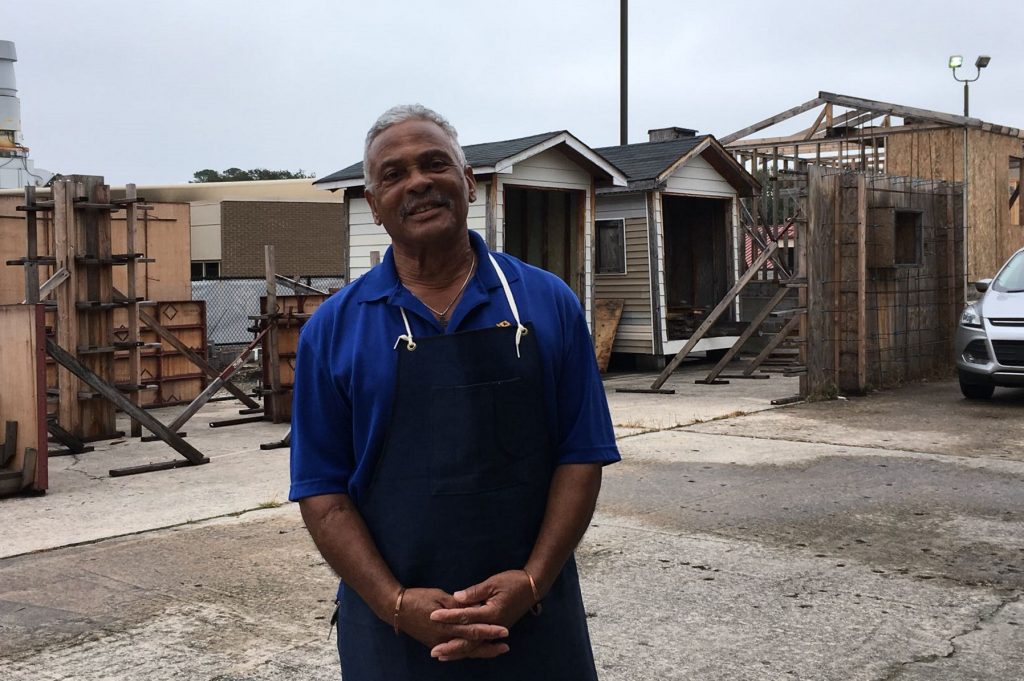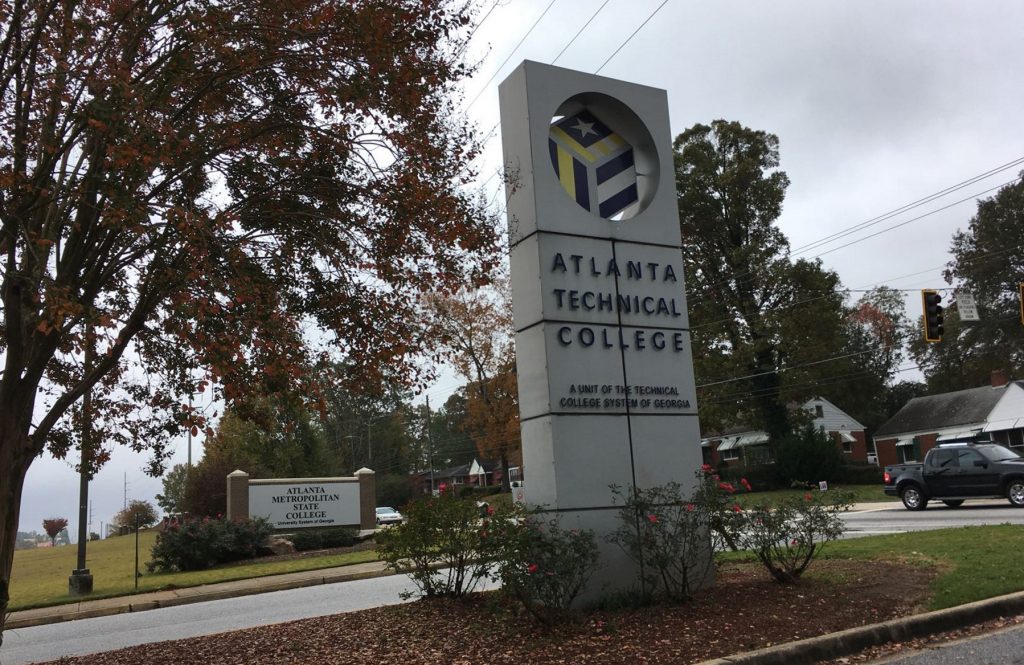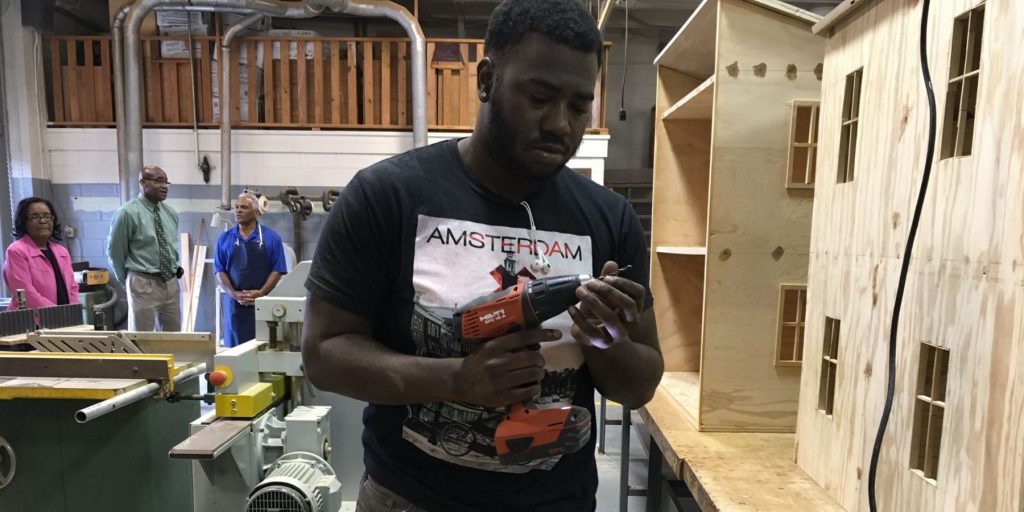Ga. Expands Free-Tuition HOPE Program To Meet Construction Demand

Shawn Bibbs is a first-year carpentry student at Atlanta Technical College. The state of Georgia is looking for ways to bring more workers into high-demand fields like construction. The HOPE Career Grant covers college tuition for a dozen high-demand fields. Starting in January, more fields will be added to the list.
Tasnim Shamma / WABE
There’s a shortage of construction workers in Georgia. They’re retiring and not enough people are stepping up to replace these workers.
The state of Georgia is now looking at new ways to bring more workers into high-demand fields, like construction. One way is by expanding the HOPE Career Grant, a tuition grant program, to five more industries.
Construction Boom

A.J. Mickelbury is an instructor at Atlanta Technical College in Southwest Atlanta.
“If you just drive around the city of Atlanta, there’s construction going on everywhere, but skilled workers are at an all-time low,” Mickelbury said.
His carpentry students are in high demand by big construction companies.
“Holder Construction, Turner Construction, other major corporations are begging for workers,” Mickelbury said. “They’re kicking our doors in to try to get workers.”
Worker Shortage

A recent survey by the Associated General Contractors of America found 78 percent of contractors in Georgia said they were having a hard time filling hourly skilled craft positions like carpenters.
Mickelbury said the root of the problem is the education system’s focus on book-learning.
“The high schools have eliminated too many of the trades, which I think is a tragedy,” Mickelbury said. “Everybody’s not going to be a doctor or a lawyer. Some people have to be carpenters and plumbers and electricians.”
It’s why he said he’s on a mission to get more students at Atlanta Technical College to stick with construction. Students like 24-year-old Keverth Carmichael, who goes by KC.
Tuition Help

KC uses a red power drill to transform a rectangular piece of wood into a stepping stool.
When KC’s not shaping wood, he mixes music as a DJ to pay for school. He lives with his aunt, who also pitches in for the $1,700 tuition fee.
Next year, KC might not have to think about tuition.
Currently, the HOPE Career Grant covers college tuition for a dozen high-demand fields, from commercial truck driving to computer programming.
Starting in January, construction, aviation, electrical line work, logistics and automotive technology will be added to the list.
That’s good news for aspiring carpenters like KC.
“I won’t have to worry about paying for school so I can actually work on my work and not be stressed about if I’m going to be put out of school in the middle of the semester,” he said.
He started a bachelor’s program in communications at Alabama State University but returned home to Atlanta because it was too expensive.
HOPE Funding
The HOPE Career Grant is funded by the Georgia Lottery, and it’s meant to push high school students into industries that need more workers.
Ben Hames, deputy commissioner of workforce for Georgia, said it’s critical to get more young people into skilled trades.
“What we’re hearing from companies is, ‘My workforce is working overtime, they’re getting older, and I’m concerned about where our workforce is going to come from in the future,’” Hames said.
Keverth Carmichael said he wants to be part of that future and capitalize on the state’s need for more construction workers.
“There’s always going to be something that needs to be built, fixed, remodeled,” Carmichael said. “Somebody’s always going to have to know how to do it, so why not be skilled in something that is in high demand?”








